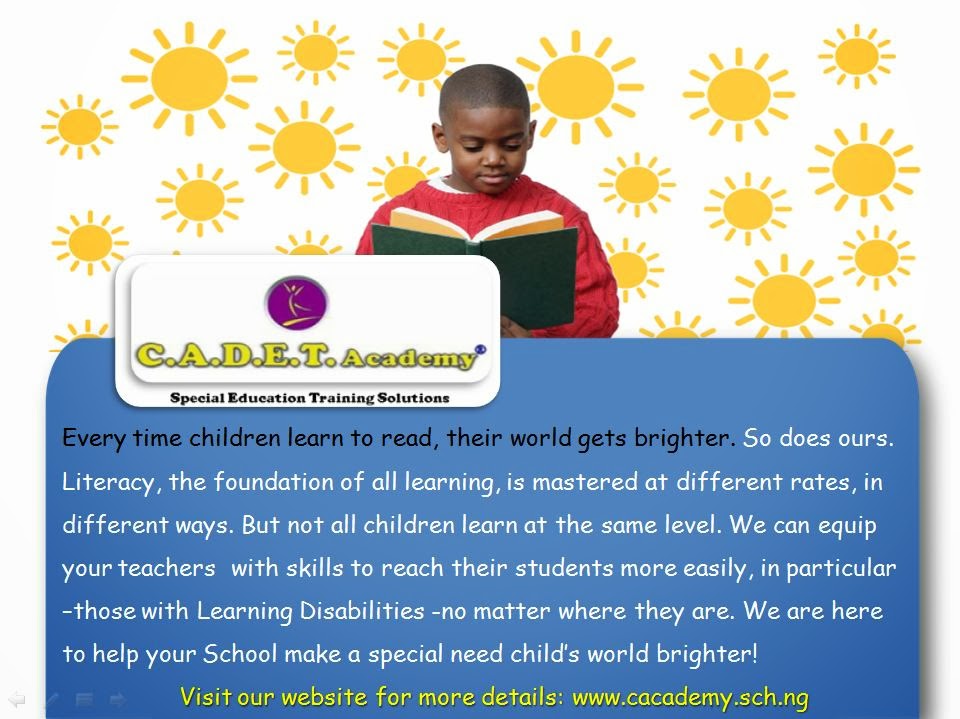On the 30th of January 2014, The Comprehensive Autism and related Disabilities Education and Training (C.A.D.E.T.) Academy Abuja was visited by a team from Benola - Cerebral Palsy Initative. Benola is a Not for Profit Organisation located in Lagos, Nigeria. They are committed to change and progress for persons living with Cerebral Palsy (CP).
CP is a condition marked by impaired muscle coordination (spastic paralysis) and/or other disabilities, typically caused by damage to the brain before or at birth.
*There are 17 million people across the world living with Cerebral Palsy (CP). Another 350 million people are closely connected to a child or adult with CP. It is the most common physical disability in childhood.
*CP is a permanent disability that affects movement. Its impact can range from a weakness in one hand, to almost a complete lack of voluntary movement.
*It is a complex disability: 1 in 4 children with CP cannot talk, 1 in 3 cannot walk, 1 in 2 have an intellectual disability, 1 in 4 have epilepsy.*
*CP is a lifelong disability and there is no known cure. (Source: Novak I, Hines M,Goldsmith S, Barclay R (2012) Clinical Prognostic Messages from a Systematic Review on Cerebral Palsy, Pediatrics, 130:5)
The visit offered an opportunity for cross fertilization of ideas in the areas of special education needs and awareness efforts between the two organizations.
Here are some pictures from the visit:
 |
| AVM Femi Gbadebo (Founder/CEO Benola) explaining a point to Mrs Lola Aneke (Executive Director, C.A.D.E.T. Academy) |


